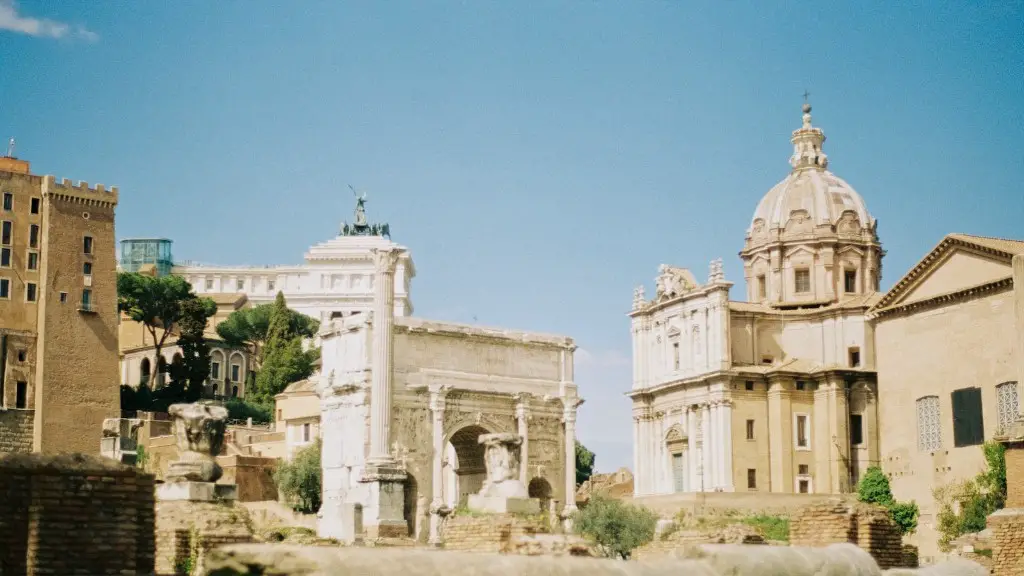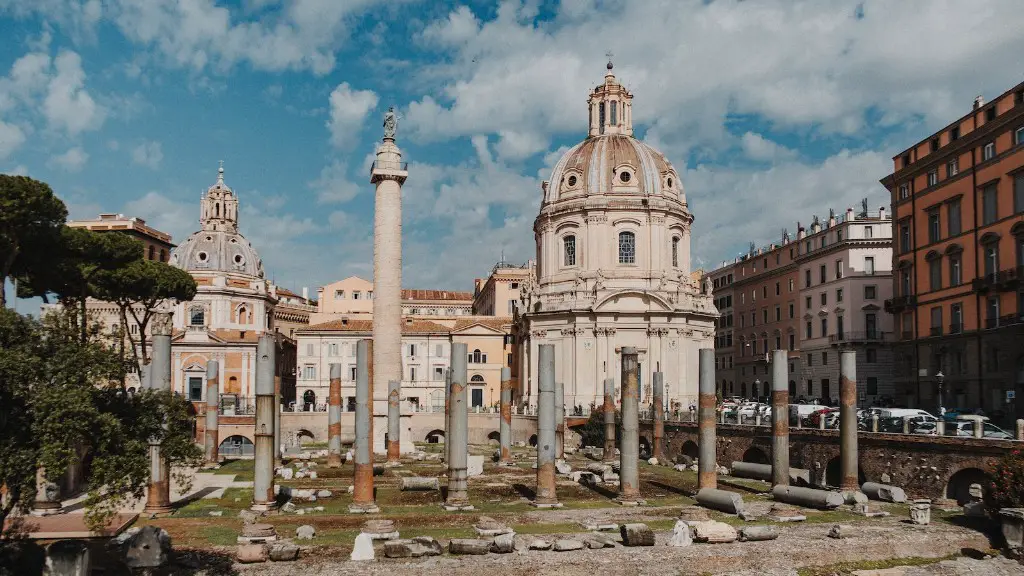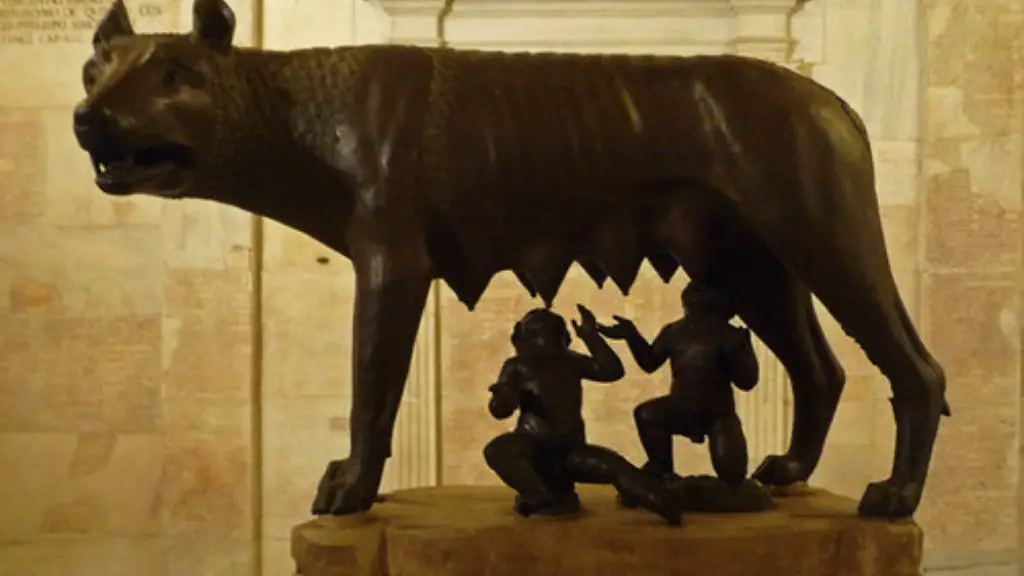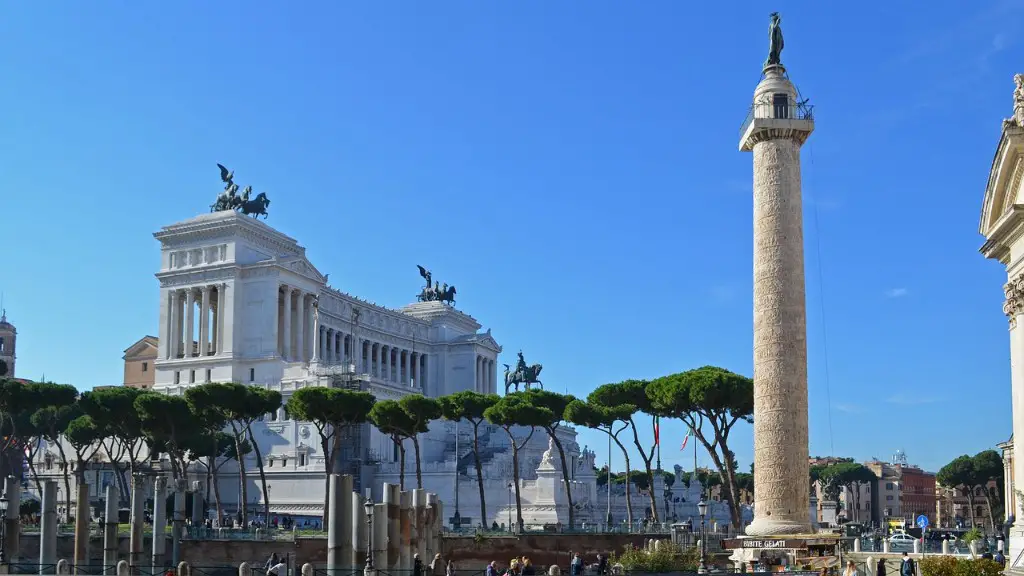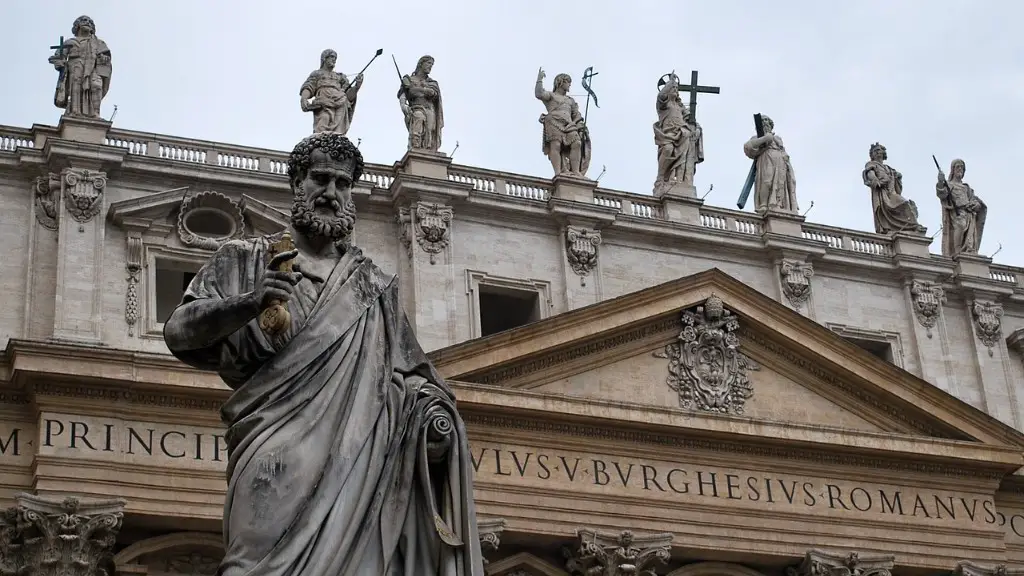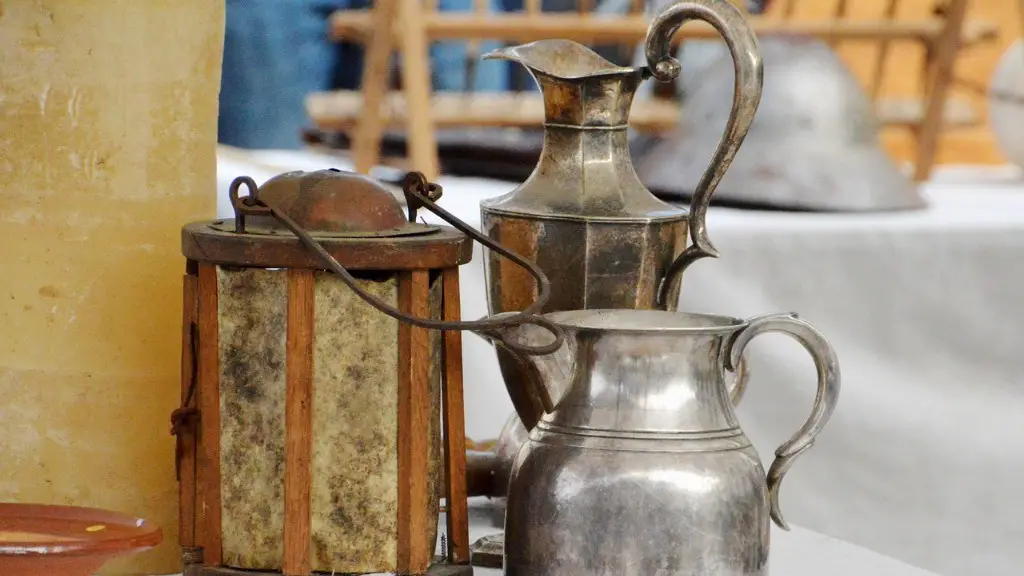Ancient Rome has had a lasting influence on the modern world. From its early days as a republic to its later years as an empire, Rome has left a lasting mark on the world. Many of the things we take for granted today, such as our form of government, our legal system, and even our architecture, can be traced back toAncient Rome.
Ancient Rome was one of the most powerful empires in the world for centuries. During that time, the Roman culture had a significant influence on the development of modern Western civilization. Many of the institutions and values that are integral to contemporary society, such as democracy, law, and even monumental architecture, can trace their origins back to Ancient Rome.
How did Rome influence modern society?
Roman law was one of the most influential legal systems of all time. Many modern legal concepts can trace their origins back to Roman law. Ideas like trial by jury, civil rights, contracts, personal property, legal wills, and corporations all were influenced by Roman law. The Roman way of looking at things had a profound impact on the development of the modern legal system.
The Romans were responsible for many things that we take for granted today. They were the first to introduce street stalls and fast food, as well as plumbing and sanitation. They also developed towns and built roads. Our calendar is also based on the Roman calendar. Thank you, Romans!
What are the contributions of ancient Rome to the world today
We often take for granted the many inventions and innovations that came from the Roman Empire. Here are just 10 of them that we should be thankful for:
1. Cement – The Romans were the first to develop cement, which is a key ingredient in concrete. This allowed them to build some of the most impressive and durable structures in history, many of which are still standing today.
2. Aqueducts – The Roman aqueducts were an engineering marvel and allowed for the transport of water over long distances. This was crucial for the growth of cities and for public hygiene.
3. Roads – The Roman road network was the most extensive of its time and allowed for the movement of people and goods over vast distances. This was essential for the growth and prosperity of the empire.
4. Social care and welfare – The Romans were one of the first civilizations to develop systems of social care and welfare. This helped to ensure that the most vulnerable members of society were taken care of and prevented widespread poverty and suffering.
5. Julian calendar – The Julian calendar, which was introduced by the Romans, was a major improvement over previous calendar systems. It was more accurate and helped to bring about greater stability and predictability in the
The Founders of the United States Constitution were inspired by the Roman Republic when they were creating their own government. They borrowed features like the checks and balances system, the bicameral legislature, term limits, and age requirements. In some cases, they even borrowed specific words from the Roman constitution, like “senate,” “capitol,” and “committee.”
What did the Romans ever give us?
The outbreak of COVID-19 has had a profound impact on our lives, both on a personal and professional level. In addition to the obvious health concerns, the pandemic has forced us to change the way we live and work.
On a personal level, many of us have had to adapt to working from home, being homeschooling our children, and being isolated from our friends and families. It’s been a challenging time, to say the least.
On a professional level, the pandemic has had a major impact on the events industry. Events have been cancelled or postponed, and many businesses have had to adapt their offerings to meet the needs of a changed marketplace.
While it’s been a difficult time for everyone, the silver lining is that we have been forced to slow down and re-evaluate what’s important to us. For many of us, this has been a time to reconnect with our families, focus on our health, and appreciate the simple things in life.
There are many things that we use in our everyday lives that were invented by the Ancient Romans! Here are just a few examples:
-Roads: The old proverb “all roads lead to Rome” (usually interpreted as “many paths may lead one to the same goal”) stems from the fact that originally they sort of did, or rather they came from Rome!
-Central heating: The first recorded instance of central heating comes from the Roman baths, which used a system of hot air and water to warm up the large, open spaces.
-Concrete: Ancient Rome was responsible for the widespread use of concrete, which revolutionized building construction and allowed for the creation of massive structures like the Colosseum and the Pantheon.
-The calendar: The modern calendar that we use today is based on the one created by the Ancient Romans, which originally had 10 months (March-December) and 304 days.
-Flushing toilets and sewers: The Ancient Romans were the first to develop a system of flushing toilets and sewers, which was essential for public health in a densely populated city like Rome.
What 3 ideas did America get from Rome?
America’s executive, judicial, and legislative branches are directly derived from the Ancient Roman model. In times of peace, the executive branch of the ancient Rome comprised two consuls, elected by Roman landowners for 1 year terms. The legislative branch was the Roman Senate, which was composed of wealthy landowners. The judicial branch was the Roman court system, which was also composed of wealthy landowners.
The Roman Empire was a vast and powerful empire that spanned across Europe, North Africa, and the Middle East. The Roman way of life, including their legal system, had a profound impact on the development of Western civilization. Many of the legal concepts that we take for granted today, like trial by jury, civil rights, contracts, and corporations, all have their roots in Roman law. Even the Latin language spoken by the Romans spread throughout much of Western Europe during the empire’s reign. Thus, it is clear that the Romans have had a lasting and significant impact on Western culture.
Why is Romans so important
Today, Romans is one of the most influential theological books ever written. It is known for clearly articulating key doctrines like man’s sinfulness, justification by faith, regeneration, union with Christ, adoption, and sanctification. These doctrines have shaped the course of Christian thought for centuries and continue to do so today. Romans is also known for its rich, deep, glorious, and at times unsettling theological assertions and implications. These make it a book that is essential reading for anyone interested in the Christian faith.
Cement is a key ingredient in concrete, which the Romans used to build huge arches and domes, as well as more than 50,000 miles of roads. This helped to unify the empire, as aqueducts carried water from the countryside to the city.
What will the Romans be remembered for?
Ancient Rome is one of the most powerful empires in history. It is known for its advanced engineering, military successes, religious customs, entertainment and its brutality. Ancient Rome dominated the world for centuries and left a lasting legacy.
It is amazing how many modern conveniences can trace their origins back to the Roman Empire. Roads, central heating, concrete, the calendar, and even flushing toilets and sewers can all be traced back to the people of Rome. It is a testament to their engineering and organizational skills that so many of their inventions are still in use today.
Why is the fall of Rome important today
You are absolutely correct that the collapse of the Roman empire was one of the greatest disasters in history. But I believe that it was also the best thing that ever happened to Europe. The reason being is that it freed Europe from being ruled by a single power. After the collapse of Rome, Europe was divided into many small kingdoms which were constantly fighting and competing with each other. This led to a period of great creativity and progress. So in a way, the collapse of Rome was a good thing for Europe.
Dignitas was an important concept in ancient Rome. It referred to a person’s reputation for worth, honour and esteem. A person who displayed the values of a Roman – such as gravitas, constantia, fides and pietas – would have dignitas among their peers. By upholding these values, a Roman could earn auctoritas, which was a kind of prestige and respect.
What are three reasons why Rome was so successful?
Rome became the most powerful state in the world by the first century BCE through a combination of military power, political flexibility, economic expansion, and more than a bit of good luck. Rome’s rise to power began with its defeat of the Etruscan city-states to the north, which allowed them to gain control of the Italian peninsula. From there, Rome slowly but surely expanded its reach, first through alliances and treaties with other states, and then through conquest. Rome’s military was incredibly effective, especially its legendary legions, and its political system was adaptable, incorporating the best aspects of the states it conquered. Lastly, Rome’s economy was booming, thanks in part to its trade with the East. All of these factors allowed Rome to become the superpower of the Mediterranean world.
The greatest achievement of the Roman Empire was its vast size and long duration. The empire lasted for over 11 centuries and encompassed three continents. This is an extraordinary feat that is unmatched by any other empire in history. The Roman Empire was also notable for its impact on Western culture. The empire was responsible for introducing many aspects of Roman society, such as law, language, and architecture, to the Western world.
Conclusion
There are many ways in which ancient Rome has influenced the modern world. Perhaps the most significant way is through the Roman system of law, which forms the basis of many legal systems around the world today. Roman architecture and engineering have also had a lasting impact, with many modern buildings and bridges incorporating elements of Roman design. In addition, the Latin language, which was developed and refined by the Romans, is still widely used in academia and by the Catholic Church. Finally, the legacy of the Roman Empire can be seen in the way that many modern nations (particularly in Europe) have inherited its political and social traditions.
Ancient Rome continues to influence the modern world in many ways. Roman architecture is still evident in many modern buildings. Roman law is the basis for many modern legal systems. And the Latin alphabet is used in many modern languages.
